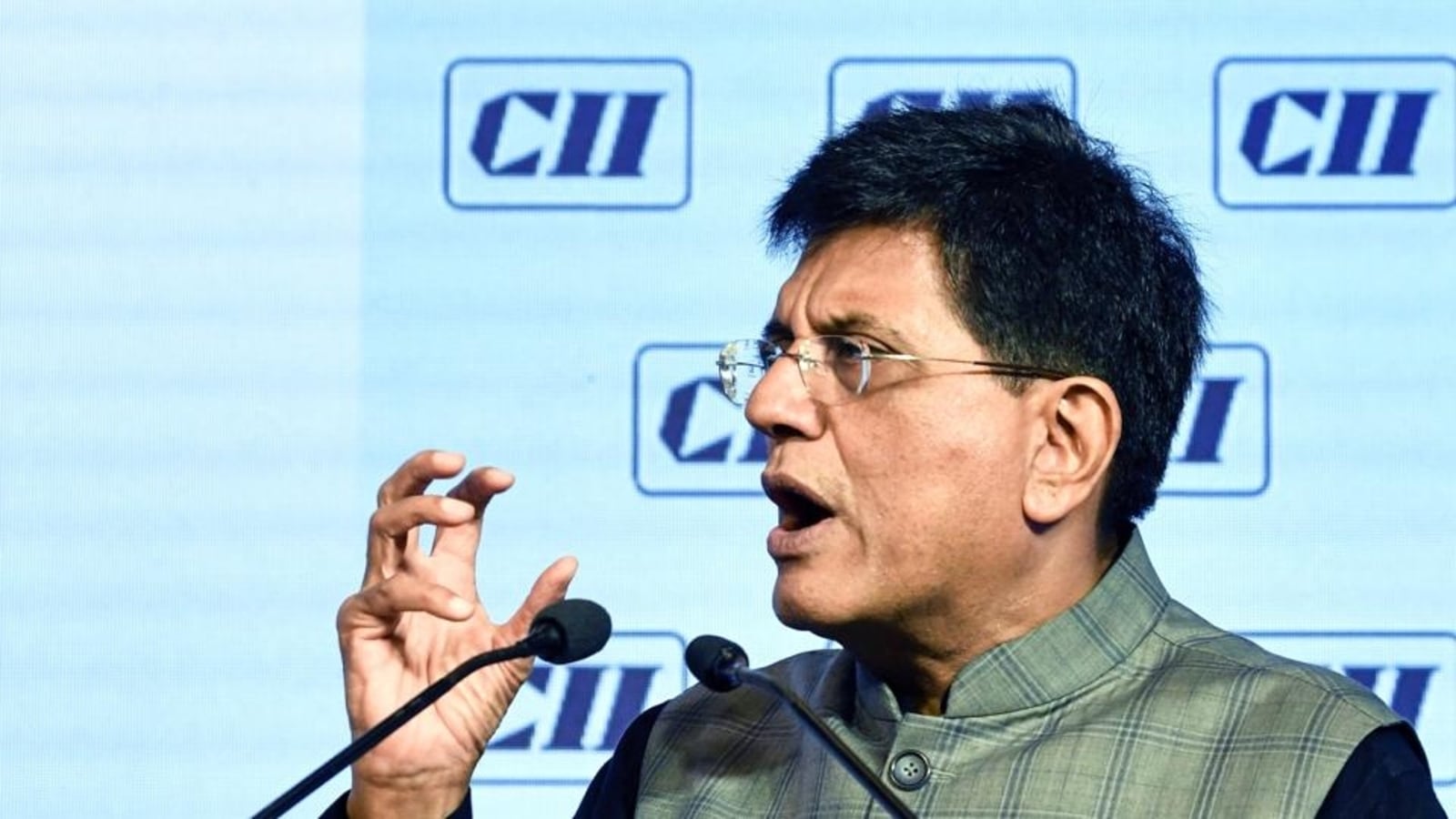Unfettered growth of e-commerce in India may cause “huge social disruption”, impacting the livelihood of 100 million small retailers across the country, Union commerce and industry minister Piyush Goyal said on Wednesday, accusing multinationals such as Amazon of resorting to unfair practices such as predatory pricing to gain market share. His comments are likely to cause concern among large e-commerce companies, Indian as well as foreign, as well as investors that have pumped billions of dollars into them.
Commenting on Pahle India Foundation’s report “Net Impact of E-Commerce on Employment and Consumer Welfare in India”, Goyal said that the study has prompted “us to start assessing the subject” based on data and empirical evidence. “I’m being contrarian … we have seen this happened in the West. I dare say, Europe, America, all have seen the consequences of this,” he said referring to the disappearance of so-called Mom-n-Pop or kirana stores. Cautious about its disruptive potential, Switzerland initially discouraged e-commerce and later allowed it in a limited way, he added. While Goyal did not elaborate, it is likely that he was referring to the new laws governing e-commerce that will come into effect in the European country from next year, that recognize e-commerce platforms as “deemed suppliers” — a move that is likely to have far-reaching impact on them.
“I’m not wishing away e-commerce. It’s there to stay… Since this is a study about the impact it should be dispassionate. It should come out with even more details…,” he said emphasising the social need to venture out for shopping and eating out with friends instead of “becoming a country of couch potatoes” watching OTT and ordering in every day.
Read more: Why Piyush Goyal thinks Amazon’s India investments should not be celebrated: ‘Making up for losses’
“But, I don’t deny that e-commerce has a role. But, we’ll have to think very carefully and cautiously what that role is. Is predatory pricing policy good for the country where Amazon says we are going to invest a billion dollars in India, and we all celebrate. We forget the underlying story that the billion dollars is not coming in for any great service or any great investment to support the Indian economy. They made a billion dollars loss in their balance sheet that year. They have to fill in that loss. And how did that loss get caused? They paid ₹1,000 crore to professionals. I don’t know who these professionals are..,” he said.
“I’d love to know which chartered accountants, professionals, lawyers get ₹1,000 crore unless you are paying all the top lawyers to block them so that nobody can fight a case against you. ”
The minister continued in the same vein: “ If you make ₹6,000 crore loss in one year, does that not smell of predatory pricing to any of you? They are, after all an e-commerce platform. They are not allowed to do B2C (business to consumer).”
Indian laws only allow multinational e-commerce companies to operate platforms that connect sellers to buyers. They cap the stake the companies can have in the sellers. Foreign investment in retail and e-commerce are both issues of significant political relevance in India. It is widely believed that small traders and retailers constitute the core electoral base of the Bharatiya Janata Party which heads the NDA coalition governing the country.
Amazon officials declined comment on Goyal’s statements.
The minister also accused multinational e-commerce companies of bypassing the law. “The ecommerce platform legally cannot do business to consumer. They create entities where Indians contribute to making those entities, sadly. Then they get caught. So, they start closing down those entities.”
India’s e-commerce market was estimated to be $22 billion in 2018 and estimated to grow at $350 billion by 2030. It is dominated by Amazon, and Flipkart, which is owned by WalMart. It is dominated by Amazon, and Flipkart which is owned by WalMart.
Goyal specifically targeted online pharmacies and the sale of mobile phones online.
Speaking about the fate of over 500,000 pharmacies in the country, Goyal said online sale of drugs and medicines could result in there being no verification of prescriptions. “Who’s going to take care of our children today? Online you can order what you want… It’s a matter of concern. Local pharmacist would take your prescription. He knew all the local doctors around. He would check the genuineness of that prescription. And make sure your children are protected. Who’s going to give that protection? That delivery boy!… ”
He said that several neighbourhood mobile phone stores have disappeared in last 10 years, giving space to large retailers. Now there’s no recourse to get phones repaired because multinational mobile manufacturers want people to buy new phones, he added.
“Recognise, my friends, India is a developing country. We are not yet America. We are not Switzerland with $100,000 per capita income,” he said.
The minister admitted that “technology will play its part. Technology is a means to empower. Is a means to innovate. It is a means to meet consumer requirements, probably, sometimes more efficiently.”
Emphasising the need to see that sector grows in an “orderly” manner, he said: “We will have to see that this connectivity, this convenience is citizen centric. It democratizes or socialises the benefits to larger sections of society. It ensures that in the race for market share… we don’t land up causing huge disruption for 100 million small retailers across the country, who also serve.”
According to blogs published on the company’s website, Amazon has pledged to invest $26 billion in India by 2030, digitise 10 million small businesses, enable $20 billion in exports, and create two million jobs by 2025. It has thus far digitised over 6.2 million micro, small and medium enterprises (MSMEs), enabled nearly $8 billion in exports, and created over 1.3 million jobs in India since inception, according to the information on its website.
